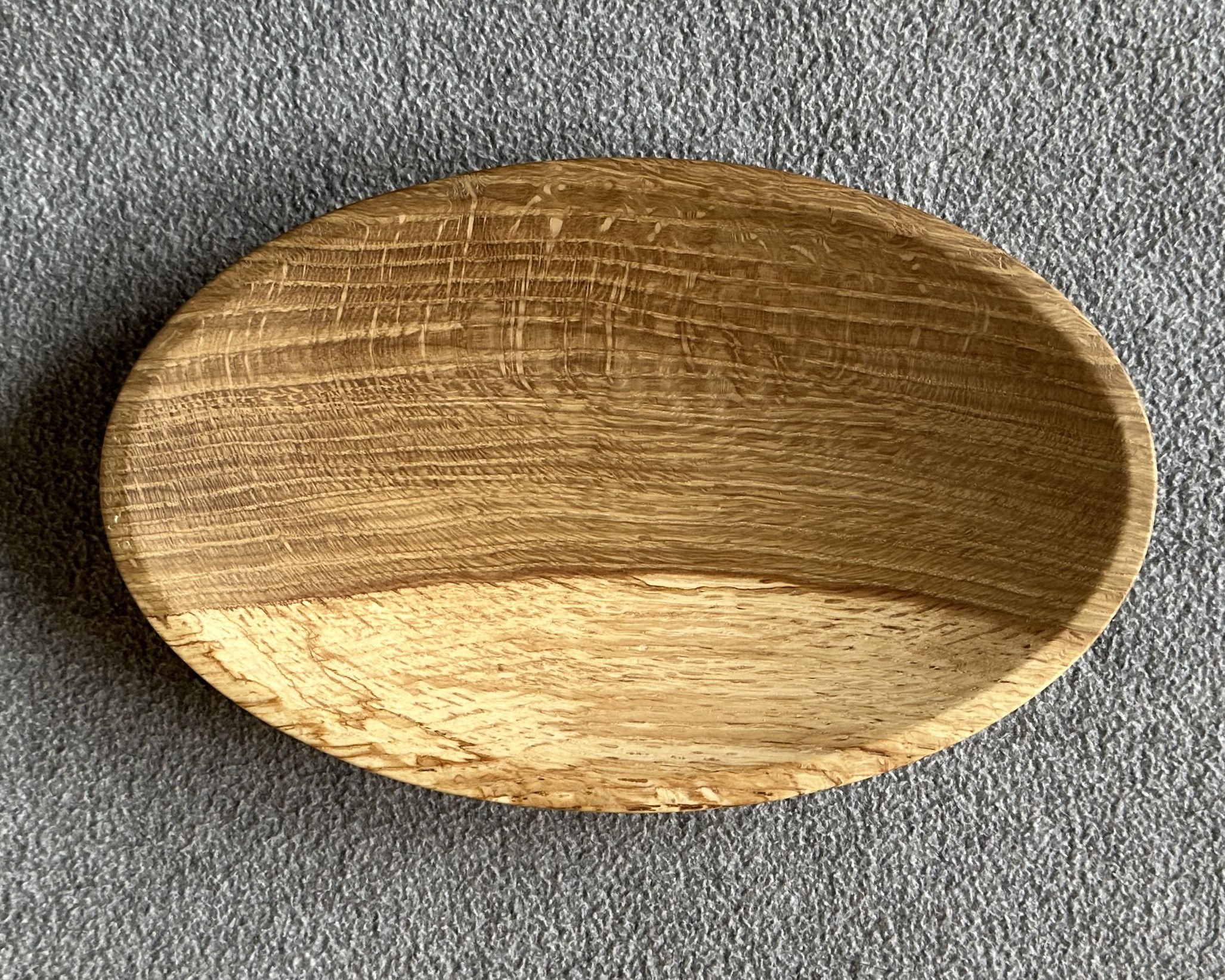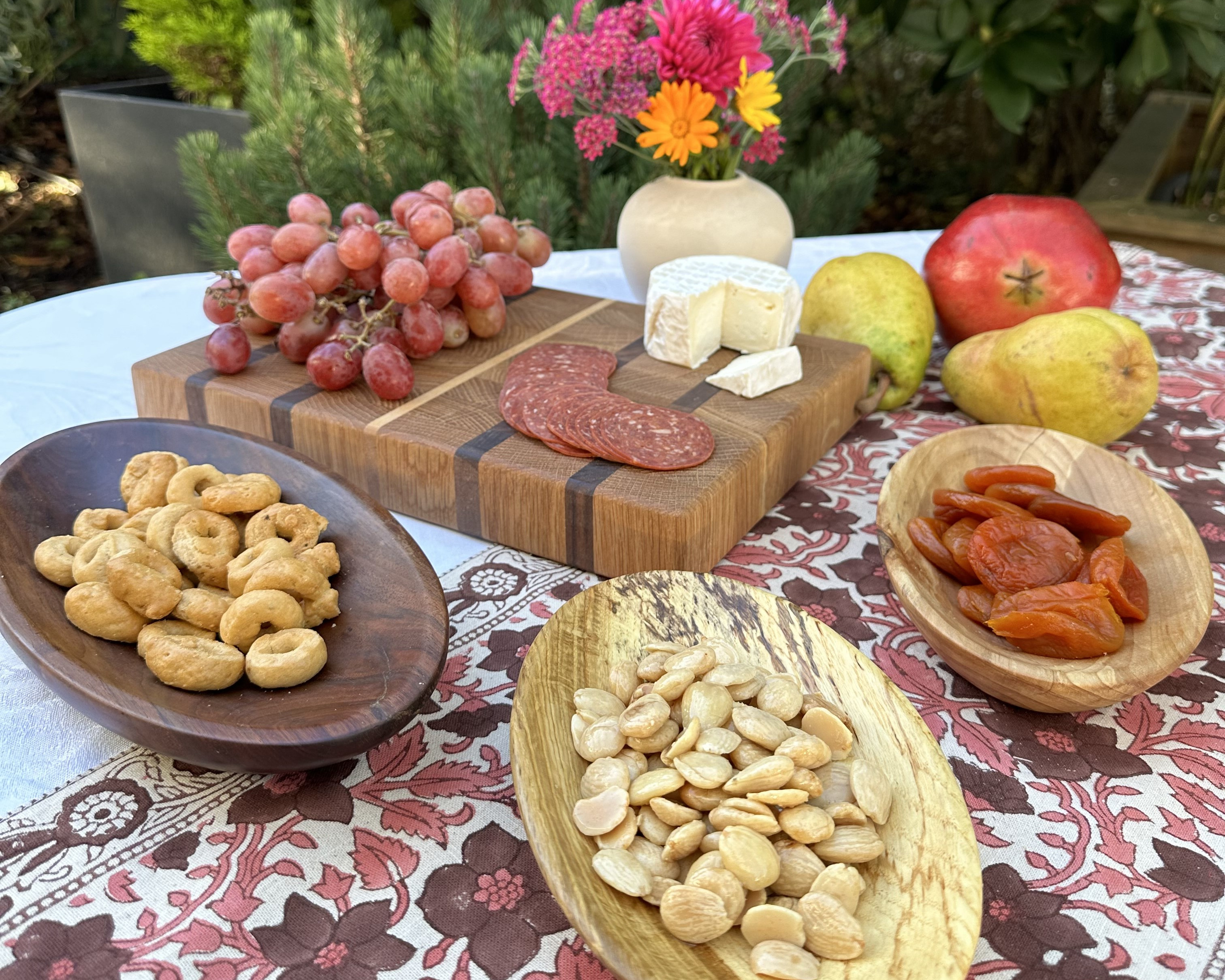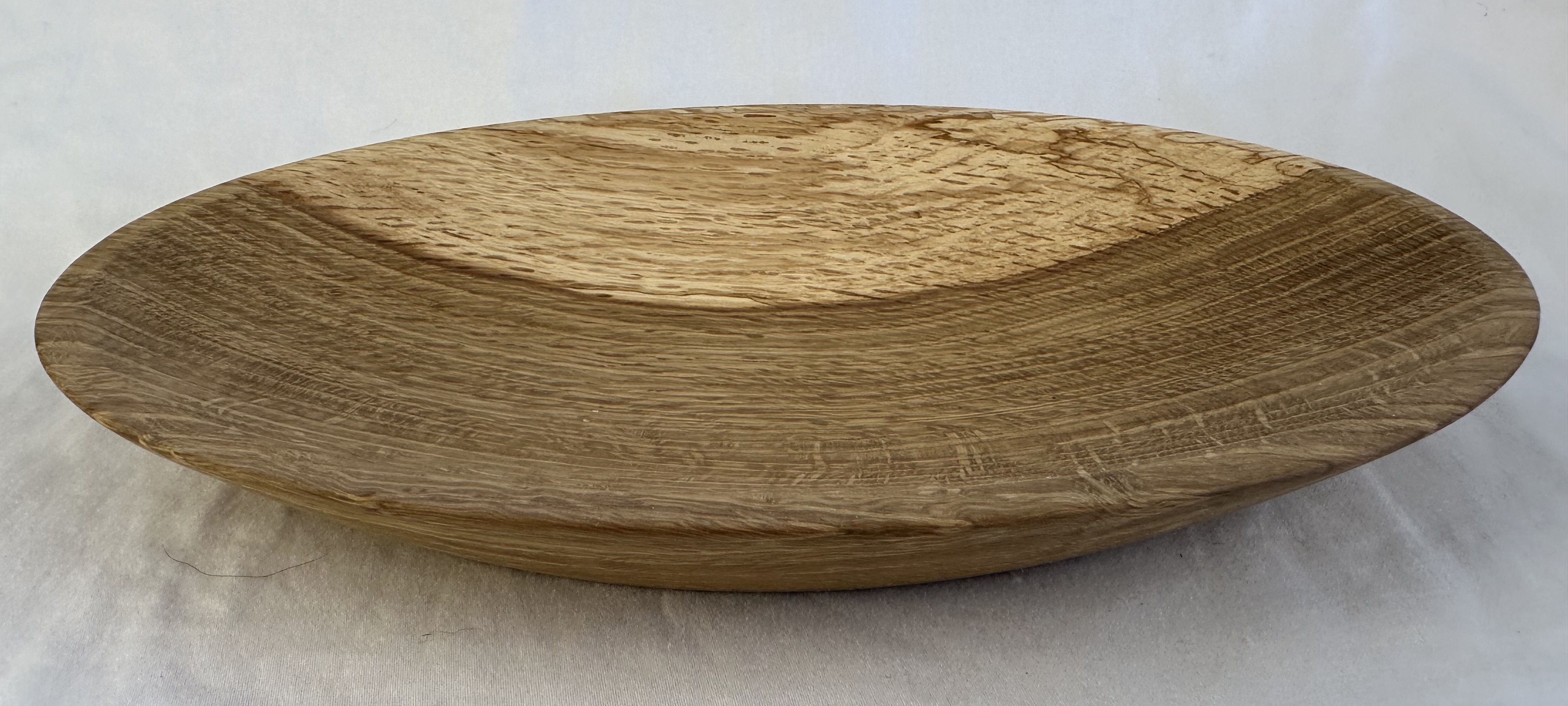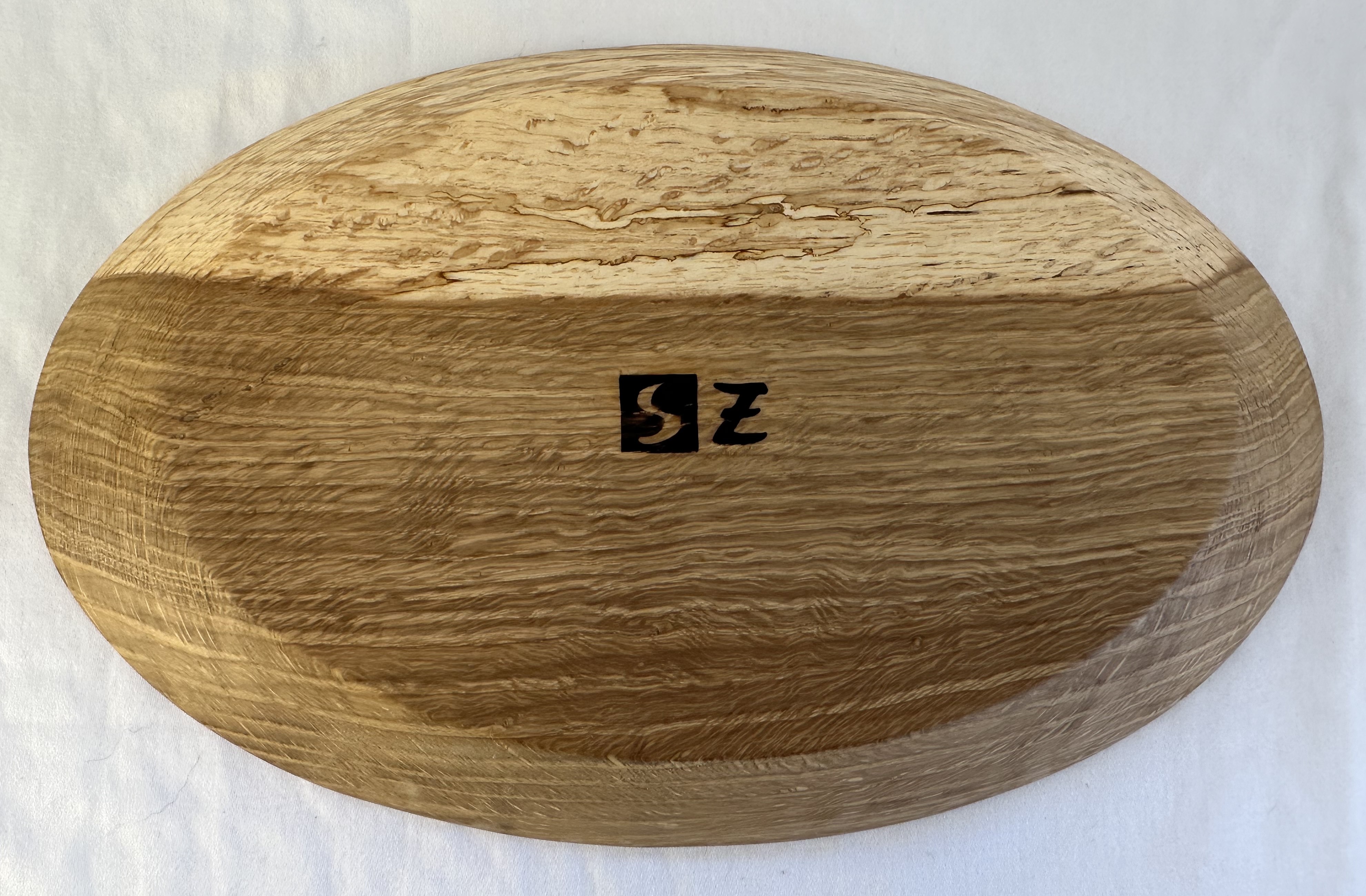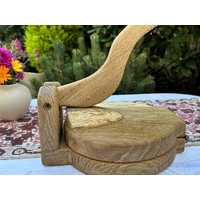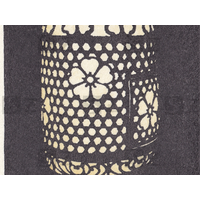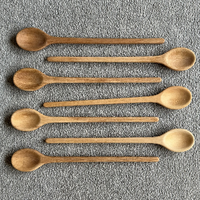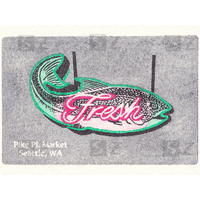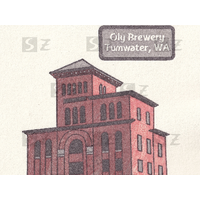About this Product
Life is beautiful - aperitivo celebrates that. Wooden aperitivo dish made from salvaged Oregon white oak. Great for torinesi and linguette. Overall size : 6.5" wide, 10.375" long, and 1.25" high. The dish is a mix of heartwood and spalted sapwood. Finished with Osmo polyx hard wax. The hard wax should last a very long time without issues. But it is slightly porous so it can be stained or allow liquid entry after prolonged exposure (e.g. if you leave a dish full of olives overnight the brine will probably stain the wood). Gently hand wash only.
I make these from wood that was salvaged. It could be from a storm downed tree, waste from a carpentry shop, old wine barrel staves, or random pieces of lumber that friends have had in storage. The objective is to make useful things from this waste and not create demand for new lumber.
Using salvaged lumber comes with a lot of hurdles. One of these is that some pieces will have imperfections, like little dings, cracks, or beetle holes. I will make sure that these do not affect the utility of the piece but they might affect the aesthetics. My hope is you will embrace these slight imperfections as part of the unique character and origins of the material from which the piece was made. If you need more detail or higher resolution photos in order to help make a decision please contact me where it says "Contact Maker".
Serdar Zanati LLC

Meet the Maker
Serdar is a family name. Zanati means craft. I make cookware and tableware from salvaged wood. I also make cards and prints using the traditional Japanese woodblock printing technique know as mokuhanga. The studio is in a beaten down Airstream in rural Thurston County.
Aspirations / ethos
Sustainability: I endeavor to use salvaged or waste as material for goods. My objective is to create no demand for virgin raw material (i.e. not cut down trees). The exception will be for mokuhanga. I will still use sustainable, handmade Japanese paper (washi) and cherry or shina blocks for carving. I will use the most nontoxic supplies available and be transparent about what I use. I will also regularly review every part of the operation for opportunities to increase sustainability. Long term, I hope to operate the studio using on-site solar.
Justice: I will try to be as racially just as possible. I will try to give to and support communities that have experienced discrimination and suffered from white supremacy by sharing profits. I will try to mitigate cultural appropriation: whenever I make and sell a product that does not have an origin in my own cultural or ethnic background (Mediterranean and Adriatic) I will acknowledge the cultural source and make a contribution of profits to try to respect the source.
Humanity: I commit to continuous learning, being open, and active listening. I will make mistakes, but I will own them and take corrective action. But, for all these aspirations, I will not let the perfect be the enemy of the good.
Transparency: I will share, upon request, information on all donations made in the prior year. I will also disclose the makeup of everything I sell (e.g. type of wood, type of wood glue, type of finish, etc...)
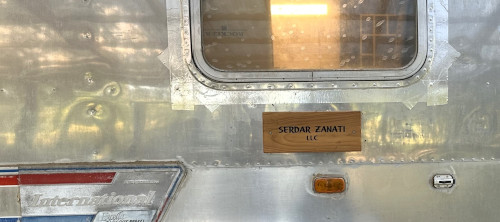
How it’s Made
After milling and processing salvaged wood I cut the form using a CNC. I then shape, repair any defects, sand, and finish by hand. Repairs are made with a mix of sawdust and Titebond 3 wood glue. This is a PVA glue that is food safe but not biodegradable. The dish is finished with Osmo polyx hard wax oil.
Shop Policies
Shipping and Returns
All items are shipped via USPS.
No returns for prints.
Returns are permitted for woodworking within 30 days from the date of the sale. Shipping will not be refunded and you must pay for return shipping.
FAQs
What is mokuhanga? Mokuhanga is a traditional Japanese printing technique. It uses non-toxic water based pigments and hand printing.
Do you get a kick back or commission from the products you use/name? No. I include the name of the products I use to make things for your information only. I want to be fully transparent so that you can verify my claims of safety and sustainability.
How do I care for the wood spoon, dish, etc…? All items should be gently hand washed only. None of the items should have prolonged exposure to liquid. Currently I use two types of finishes on wood items: either (1) Osmo polyx hard wax on dishes and tortilla presses, or (2) tung oil on spoons, stirrers, and spatulas. The hard wax should last a very long time without issues. But it is very slightly porous so it can be stained or allow liquid entry after prolonged exposure (e.g. if you leave a dish full of olives overnight the brine will probably stain the wood). It will take a long time and a lot of use before tung oil wears off a piece. Tung oil can be easily and safely reapplied whenever it wears off from use.
Are all of the items food safe? Yes. Being safe, nontoxic, and sustainable are priorities for me. The wood I use for table and serve ware is itself non-toxic. The wood finishes are safe and biodegradable. I do you use PVA (wood) glue to make butcher block, joins, or repair of cracks, splits, and filling beetle holes. PVA glue is food safe but not biodegradable. I am actively trying to get a more sustainable wood glue but current, viable options are limited.
Do you do custom work or customize the things you sell? I am open to try. Contact me where is says "Contact Maker", your vision and we can figure it out. It may mean that the thing you want costs a bit more and takes longer to make.
Why are your things so expensive? I put the question back to you: what does expensive mean? You can buy a wooden spoon made or distributed by a big corporation for an outrageously low price. But they obtain this price in large part by externalizing costs. This might mean destroying endangered habitat for raw material, using cheap coal power in manufacture, or exploiting child labor in unregulated places. So you will pay a low upfront cost, but you (and subsequent generations) will also pay a very high long term cost to mitigate the externalities. Everything I make has my hands on it and involves a lot of work. That can include processing the raw material: picking up a disposed tree trunk, drying it, rough sawing it, milling it, all before starting the work of making the final piece. I try to do all of this in a thoughtful, caring, sustainable way. I have very limited identified externalities. So the cost listed is as close as I can get to the real cost.
